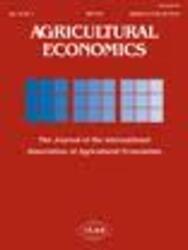Journal Article
Agriculture and Small Towns in Africa
Africa is urbanizing rapidly. Yet most dual economy models focus on the sectoral rather than spatial dimensions of development. This article adopts a “dual–dual” approach to measuring rural/urban and farm/nonfarm linkages. We develop an economy-wide model of Ethiopia that distinguishes between cities, towns, and rural areas. The model captures detailed sectoral and regional linkages, internal migration flows, and externalities from urban agglomeration. We find larger linkages between agricultural production and small towns and show that redirecting urban growth toward towns rather than cities leads to broader-based economic growth and poverty reduction. In contrast, industry and services, particularly within cities, are far less effective in reaching rural areas and the poor. Africa's current urbanization pattern—toward major cities rather than towns—will weaken national growth–poverty linkages. Urbanization that takes advantage of the synergistic relationship between agriculture and small towns has the potential to result in a more inclusive growth trajectory.
 Join the network
Join the network